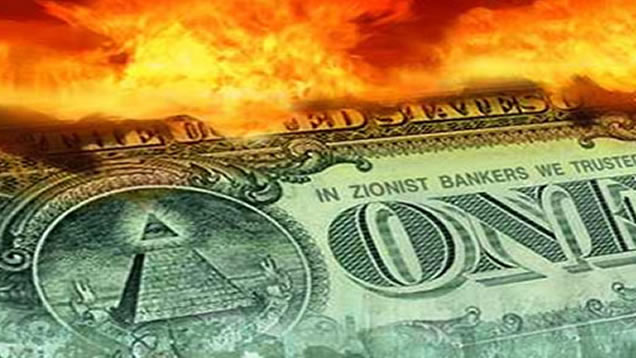 Parler
Parler Gab
Gab
Make every penny count
Start with being debt-free. Put money in savings or a cash fund that is readily available in case it is needed. Cash and money market accounts, as well as short-term government investments, will help most in a crisis. These resources are also more sound because their value does not fluctuate with market conditions, unlike stocks, index funds or other financial instruments that one can invest in. Having ready cash means you don't need to take your money out if there's going to be a financial loss. Make sure to budget properly. If you have major obligations, such as mortgages or tuition payments, you will want to have your expenses saved up with at least a three-month expense cushion. (Related: This must-see interview with James Rickards will make you completely rethink your financial preparedness for the coming collapse.) There is also the process of being frugal now to survive and thrive later. If you don't know exactly how much money you have coming and going, you will not know how much money you will need for your emergency fund. You have to know whether you're living below your means or overextending yourself. A budget is a useful tool that could help you decide where your money is going and know your financial standing. Get bills paid and pay off all credit cards. If you have credit card debt, the interest charges can take up a significant portion of your monthly budget, so make it a point to pay it down to reduce your monthly financial obligations. Start cutting out anything that is not necessary. If you could get your recurring monthly expenses as low as they could be, you will have less difficulty paying your bills when money is tight.Prioritize food sources
Store at least a month's worth of food products. Sit down and make a meal plan for a month so you can buy groceries and stock up accordingly. This can be expensive so buy ingredients for an extra meal or two every time you go to the store. Canned goods, boxed mixes, packaged dinners and similar items can be stored for a year or more depending on the food, packaging and storage conditions. If possible, find ways to grow food and preserve that food for when SHTF. Many people think that they can't grow food, but there is a way to do it no matter how small your space is. Grow lights are a good alternative for sunlight, making growing plants indoors viable. Grow food from scraps of vegetables in buckets and containers. You can also make raised beds and landscaping outside. (Related: Financial analysts SUSPENDED for criticizing totalitarian lockdowns and vaccine mandates.)Build relationships
Whether you need help with fixing something, babysitting or more, you will need your friends and family to help you through a tough time, so build relationships when you can. Start by building working relationships with neighbors, co-workers and like-minded people. Start the art of bartering – offer help and get help in return. These relationships are even more important in a crisis when everyone gets affected differently. While you may be prepared to take care of yourself and your family during an economic crisis, you will need help from others to survive due to circumstances beyond your control. Be prepared to reach out and have someone reach out to you. The tables can turn very quickly during a crisis. You never know when you may need help from others. You cannot control all the variables in a crisis, but through deliberate preparation, you can mitigate some of the possible consequences when serious financial challenges arise.More related stories:
Federal government set records for taxes, spending and deficit through May.
Is this the end of the republic?
Clown World: D.C. elites consider minting 'trillion-dollar coin' to game debt limit.
11 Ways to maintain your mental composure during a crisis.
Watch the video below to learn more about the possibility of economic collapse. This video is from Truthchannel on Brighteon.com. Follow Collapse.news for more news related to financial collapse. Sources include: LivingLifeInRuralIowa.com TheProvidentPrepper.org Brighteon.comThe end of meat? Dutch “green” policies force dairy farmer to cull 95% of his herd
By Ethan Huff // Share
Food supply 101: How to grow edible mushrooms in your home garden
By Zoey Sky // Share
Home gardening tips: How to grow and harvest radishes
By Zoey Sky // Share
Giant swarms of locusts ravage over 80% of crops and livestock feed in region of Russia
By Belle Carter // Share
Glen Canyon Dam close to shutting down as Lake Powell water levels continue to drop
By Arsenio Toledo // Share
Governments continue to obscure COVID-19 vaccine data amid rising concerns over excess deaths
By patricklewis // Share
Tech giant Microsoft backs EXTINCTION with its support of carbon capture programs
By ramontomeydw // Share
Germany to resume arms exports to Israel despite repeated ceasefire violations
By isabelle // Share










